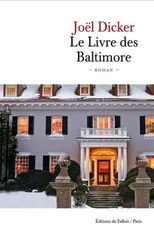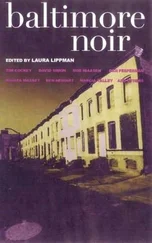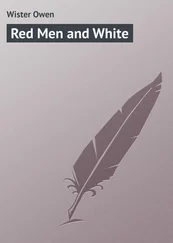Owen Wister - Lady Baltimore
Здесь есть возможность читать онлайн «Owen Wister - Lady Baltimore» весь текст электронной книги совершенно бесплатно (целиком полную версию без сокращений). В некоторых случаях можно слушать аудио, скачать через торрент в формате fb2 и присутствует краткое содержание. Жанр: Вестерн, на английском языке. Описание произведения, (предисловие) а так же отзывы посетителей доступны на портале библиотеки ЛибКат.
- Название:Lady Baltimore
- Автор:
- Жанр:
- Год:неизвестен
- ISBN:нет данных
- Рейтинг книги:5 / 5. Голосов: 1
-
Избранное:Добавить в избранное
- Отзывы:
-
Ваша оценка:
- 100
- 1
- 2
- 3
- 4
- 5
Lady Baltimore: краткое содержание, описание и аннотация
Предлагаем к чтению аннотацию, описание, краткое содержание или предисловие (зависит от того, что написал сам автор книги «Lady Baltimore»). Если вы не нашли необходимую информацию о книге — напишите в комментариях, мы постараемся отыскать её.
Lady Baltimore — читать онлайн бесплатно полную книгу (весь текст) целиком
Ниже представлен текст книги, разбитый по страницам. Система сохранения места последней прочитанной страницы, позволяет с удобством читать онлайн бесплатно книгу «Lady Baltimore», без необходимости каждый раз заново искать на чём Вы остановились. Поставьте закладку, и сможете в любой момент перейти на страницу, на которой закончили чтение.
Интервал:
Закладка:
"The poetry," he remarked, "is hereditary in my family;" and setting down the empty glasses we also washed our hands. A moon half-grown looked in at the window from the filmy darkness, and John, catching sight of it, paused with the wet soap in his hand and stared out at the dimly visible trees. "Oh, the times, the times!" he murmured to himself, gazing long; and then with a sort of start he returned to the present moment, and rinsed and dried his hands. Presently we were sitting at the table, pledging each other in well-cooled champagne; and it was not long after this that not only the negro who waited on us was plainly reveling in John's remarks, but also the cook, with her bandannaed ebony head poked round the corner of the kitchen door, was doing her utmost to lose no word of this entertainment. For John, taking up the young and the old, the quick and the dead, of masculine Kings Port, proceeded to narrate their private exploits, until by coffee-time he had unrolled for me the richest tapestry of gayeties that I remember, and I sat without breath, tearful and aching, while the two negroes had retired far into the kitchen to muffle their emotions.
"Tom, oh Tom! you Tom!" called John Mayrant; and after the man had come from the kitchen: "You may put the punch-bowl and things on the table, and clear away and go to bed. My Great-uncle Marston Chartain," he continued to me, "was of eccentric taste, and for the last twenty years of his life never had anybody to dinner but the undertaker." He paused at this point to mix the punch, and then resumed: "But for all that, he appears to have been a lively old gentleman to the end, and left us his version of a saying which is considered by some people an improvement on the original, 'Cherchez la femme.' Uncle Marston had it, 'Hunt the other woman.' Don't go too fast with that punch; it isn't as gentle as it seems."
But John and his Uncle Marston had between them given me my beginning, and, as I sat sipping my punch, I ceased to hear the anecdotes which followed. I sat sipping and smoking, and was presently aware of the deepening silence of the night, and of John no longer at the table, but by the window, looking out into the forest, and muttering once more, "Oh, the times, the times!"
"It's always a triangle," I began.
He turned round from his window. "Triangle?" He looked at my glass of punch, and then at me. "Go easy with the Bombo," he repeated.
"Bombo?" I echoed. "You call this Bombo? You don't know how remarkable that is, but that's because you don't know Aunt Carola, who is very remarkable, too. Well, never mind her now. Point is, it's always a triangle."
"I haven't a doubt of it," he replied.
"There you're right. And so was your uncle. He knew. Triangle." Here I found myself nodding portentously at John, and beating the table with my finger very solemnly.
He stood by his window seeming to wait for me. And now everything in the universe grew perfectly clear to me; I rose on mastering tides of thought, and all problems lay disposed of at my feet, while delicious strength and calm floated in my brain and being. Nothing was difficult for me. But I was getting away from the triangle, and there was John waiting at the window, and I mustn't say too much, mustn't say too much. My will reached out and caught the triangle and brought it close, and I saw it all perfectly clear again.
"What are they all," I said, "the old romances? You take Paris and Helen and Menelaus. What's that? You take Launcelot and Arthur and Guinevere. You take Paola and Francesca and her husband, what's-his-name, or Tristram and Iseult and Mark. Two men, one woman. Triangle and trouble. Other way around you get Tannhauser and Venus and Elizabeth; two women, one man; more triangle and more trouble. Yes." And I nodded at him again. The tide of my thought was pulling me hard away from this to other important world-problems, but my will held, struggling, and I kept to it.
"You wait," I told him. "I know what I mean. Trouble is, so hard to advise him right."
"Advise who right?" inquired John Mayrant.
It helped me wonderfully. My will gripped my floating thoughts and held them to it. "Friend of mine in trouble; though why he asks me when I'm not married — I'd be married now, you know, but afraid of only one wife. Man doesn't love twice; loves thrice, four, six, lots of times; but they say only one wife. Ought to be two, anyhow. Much easier for man to marry then."
"Wouldn't it be rather immoral?" John asked.
"Morality is queer thing. Like kaleidoscope. New patterns all the time. Abraham and wives — perfectly respectable. You take Pharaohs — or kings of that sort — married own sisters. All right then. Perfectly horrible now, of course. But you ask men about two wives. They'd say something to be said for that idea. Only there are the women, you know. They'd never. But I'm going to tell my friend he's doing wrong. Going to write him to-night. Where's ink?"
"It won't go to-night," said John. "What are you going to tell him?"
"Going to tell him, since only one wife, wicked not to break his engagement."
John looked at me very hard, as he stood by the window, leaning on the sill. But my will was getting all the while a stronger hold, and my thoughts were less and less inclined to stray to other world-problems; moreover, below the confusion that still a little reigned in them was the primal cunning of the old Adam, the native man, quite untroubled and alert — it saw John's look at me and it prompted my course.
"Yes," I said. "He wants the truth from me. Where's his letter? No harm reading you without names." And I fumbled in my pocket.
"Letter gone. Never mind. Facts are: friend's asked girl. Girl's said yes. Now he thinks he's bound by that."
"He thinks right," said John.
"Not a bit of it. You take Tannhauser. Engagement to Venus all a mistake. Perfectly proper to break it. Much more than proper. Only honorable thing he could do. I'm going to write it to him. Where's ink?" And I got up.
John came from his window and sat down at the table. His glass was empty, his cigar gone out, and he looked at me. But I looked round the room for the ink, noting in my search the big fireplace, simple, wooden, unornamented, but generous, and the plain plaster walls of the lodge, whereon hung two or three old prints of gamebirds; and all the while I saw John out of the corner of my eye, looking at me.
He spoke first. "Your friend has given his word to a lady; he must stand by it like a gentleman.
"Lot of difference," I returned, still looking round the room, "between spirit and letter. If his heart has broken the word, his lips can't make him a gentleman."
John brought his fist down on the table. "He had no business to get engaged to her! He must take the consequences."
That blow of the fist on the table brought my thoughts wholly clear and fixed on the one subject; my will had no longer to struggle with them, they worked of themselves in just the way that I wanted them to do.
"If he's a gentleman, he must stand to his word," John repeated, "unless she releases him."
I fumbled again for my letter. "That's just about what he says himself," I rejoined, sitting down. "He thinks he ought to take the consequences."
"Of course!" John Mayrant's face was very stern as he sat in judgment on himself.
"But why should she take the consequences?" I asked.
"What consequences?"
"Being married to a man who doesn't want her, all her life, until death them do part. How's that? Having the daily humiliation of his indifference, and the world's knowledge of his indifference. How's that? Perhaps having the further humiliation of knowing that his heart belongs to another woman. How's that? That's not what a girl bargains for. His standing to his word is not an act of honor, but a deception. And in talking about 'taking the consequences,' he's patting his personal sacrifice on the back and forgetting all about her and the sacrifice he's putting her to. What's the brief suffering of a broken engagement to that? No: the true consequences that a man should shoulder for making such a mistake is the poor opinion that society holds of him for placing a woman in such a position; and to free her is the most honorable thing he can do. Her dignity suffers less so than if she were a wife chained down to perpetual disregard."
Читать дальшеИнтервал:
Закладка:
Похожие книги на «Lady Baltimore»
Представляем Вашему вниманию похожие книги на «Lady Baltimore» списком для выбора. Мы отобрали схожую по названию и смыслу литературу в надежде предоставить читателям больше вариантов отыскать новые, интересные, ещё непрочитанные произведения.
Обсуждение, отзывы о книге «Lady Baltimore» и просто собственные мнения читателей. Оставьте ваши комментарии, напишите, что Вы думаете о произведении, его смысле или главных героях. Укажите что конкретно понравилось, а что нет, и почему Вы так считаете.










